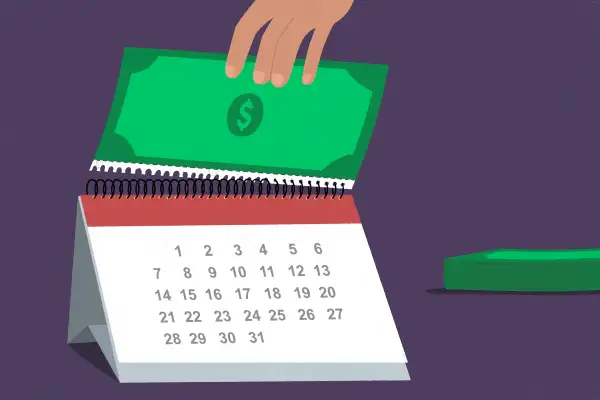Waiting Just One Year to Start Saving for Retirement Could Cost You More Than $20,000

The adage “save early and save often” gets tossed around so frequently that for folks in their 20s and 30s it can start to sound like a nag from a parent.
You know that it’s important to save for retirement, but that’s easier said than done when other priorities get in the way, like student loan payments (which are coming back this fall), medical debt, caretaking or other responsibilities. Yet the cost of waiting, even just a little bit, to start saving for retirement can come back to haunt you later in life.
Starting small now — and we are talking really small — is going to help future you be in a much better place down the line.
When should you start retirement savings?
Just one or two years of missed savings can hurt more than you may think. If you start saving when you’re 29 instead of 27, your retirement nest egg could literally be tens of thousands of dollars smaller once you reach age 65. That’s because of the power of compound interest; your money multiplies faster the longer you’ve had it in an interest-accruing retirement account because you’re getting paid interest on your interest.
We had an expert run the numbers for us. David Blanchett, head of retirement research at institutional asset manager QMA, looked at how much a person who put $5,000 per year into a retirement account would have by age 65.
If you start saving at 25, you'll have $475,128 saved by retirement age. But if you wait until you're 26, you'll end up with $452,046. That’s some $23,000 less, just from waiting a single year and depositing $5,000 less into your account.
Your dollars go further when you put them into a retirement account early. So especially when you’re just starting your savings journey, experts say every little bit helps. “Start with 50 cents. Start with $1,” says Rob Williams, vice president of financial planning and retirement income at Charles Schwab. “Create the habit and the discipline to start small and then that will snowball.”
Starting early increases your financial flexibility
If you wait to start saving, you may just tell yourself that you’ll make up by the difference by working a few extra years and delaying your retirement. That might not work out, though; research shows people consistently retire earlier than they had planned. Disability, layoffs and other road bumps can and often do arise.
“You have to take advantage of the ability to save while you are young and have the energy to work because you never know what can happen in the future — a pandemic being a classic example of why you have to think of your future,” says Marianela Collado, co-owner of Tobias Financial in Plantation, Florida. “It isn’t promised.”
Starting early will also give you “financial flexibility later in life,” according to Sean M. Pearson, associate vice president at Ameriprise Financial in Conshohocken, Pennsylvania. The pandemic has led many people to reevaluate their priorities. If you end up needing to quit your job to spend more time with family or go back to school at some point, early saving relieves some of the pressure to keep earning more, Pearson says.
“Might you want to take a job that you will like more, but has lower pay or benefits? If you save early, that choice becomes easier financially if you have a head start,” he adds.
How to start retirement savings sooner rather than later
If your employer offers a 401(k) or 403(b), that’s one of the easiest ways to save for retirement. The money comes out of your paycheck (and goes into your retirement account) before it even hits your bank account. Make sure you contribute at least to the level of any company match.
Not everyone has access to an employer-sponsored retirement plan, however. If that’s the case for you and you’re just beginning to save, a Roth IRA may be your best bet. These accounts take post-tax contributions. You don’t even need any money to open one — many offer $0 minimums, so get started with whatever you can.
Experts recommend saving 15% of your income for retirement so that you’ll be on track to have 10 times your salary put aside by age 67. If you’re not at 15% yet, don’t worry — just try to increase your contribution any time your salary goes up. Williams says these percentages are helpful guidelines but cautions against letting them lead you to all-or-nothing thinking. Just do what is realistic for you. You should never feel “like you don’t have enough to get started,” he says.

